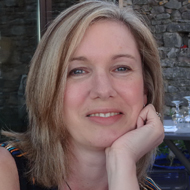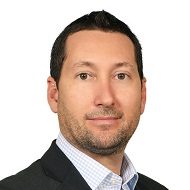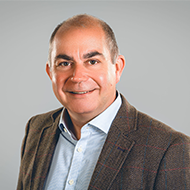Fiona's role is to provide expert air quality, odour and dust advice to clients proposing developments. These developments typically include residential or mixed-use developments; road improvement schemes; airport expansion plans; combined heat and power plant; biomass facilities; waste management facilities and energy from waste projects.
Her advice is often informed by an air quality assessment, involving the prediction of pollutant concentrations using an atmospheric dispersion model. It can also take the form of devising monitoring strategies, analysis of existing data, research based on the findings from similar projects or studies, applying relevant legislation and communicating technical guidance and best practice.
Fiona graduated from Warwick University with a BSc (Hons) in Pure Mathematics and then went on to study for an MSc in Applied Meteorology at Reading University. During hermeteorological studies,she recognised that her main areas of interest were atmospheric physics, the behaviour of the atmospheric boundary layer and the effects of the atmosphere on vegetation. She identified that a career in environmental sciences, specifically air quality, would allow her to use and develop skills.
Fiona have been with RPS Planning and Development since 2005. She started out as an Assistant Consultant and worked her way through the grades as her experience, knowledge and level of responsibilities increased. In May 2012, she was made an Associate.
"Being a member of the IES and IAQM provides me with valuable access to other consultants working in the same industry and an opportunity to share experiences and, most importantly, best practice. Their reports and journals are an essential resource to any environmental science professionals."
The IES and IAQM run user groups, conferences and seminars that allow me to continue my own professional development and maintain my knowledge and skills at the level required to give expert advice. I am also a member of the IAQM committee and contribute to guidance documents. This allows me to use my experience to help shape the future of air quality management in the UK.
Fiona enjoys the variety in her work; the next job is never the same as the last! The nature of consultancy often involves defining a problem and identifying an appropriate solution. Sometimes this can mean assisting clients in the design of their development or helping them to arrive at innovative or creative mitigation measures. She really enjoys the problem-solving aspect of my work. The nature of her role means that she can be involved in all stages of a planning application, starting with scoping and ending with the decision to grant or refuse planning permission. She finds it satisfying to see a project on which she has worked granted planning permission.
"As the European-wide recession imposes pressure to stimulate growth, part of our role as professionals in the environmental sector is to provide the necessary information to allow decision-makers to balance the environmental, social and economic impacts. I have been involved with preparing air quality evidence for a number of public inquiries for facilities deriving energy from waste. These projects can be relatively contentious and objectors can often raise some very interesting points which can challenge my own understanding of fundamental concepts. In some aspects, the science underpinning air quality is very complicated and preparing rebuttals to objections is an opportunity to communicate the science in an accessible way to others.Our understanding of the ways in which air quality affects health is increasing all the time and air quality is a fast-moving sector. I feel that there is still so much to learn and I look forward to increasing my knowledge and expanding my skill-set."
Fiona recently achieved CEnv status through the IES. She wanted formal recognition of her achievements and expertise in the environmental sector. The qualification process made her think about how each of the tasks she performs day-to-day demonstrates her skills and competencies. The process then allowed these skills and competencies to be measured against an industry standard. She felt she received constructive feedback from the process indicating areas of my work that she could focus on to bring about sustainable development.
"It was very satisfying to know that I had reached the required standard and the qualification validates my achievements. I believe that CEnv is a respected accreditation which shows both my clients and my employer that I have sound knowledge and proven experience in my chosen specialist field."
Fiona has recently become a mentor through the IES’ mentoring scheme. She hopes that she will be able to use her experiences to assist and inspire my mentee to find work within the environmental sector.




